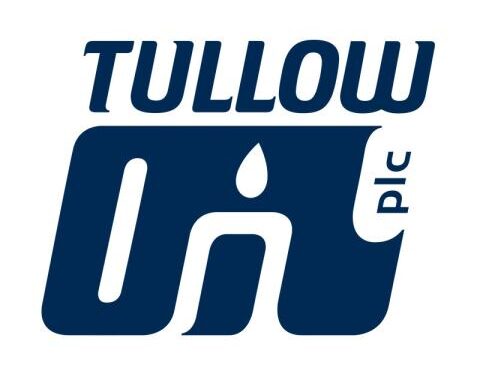Tullow’s Financial Disclosure Highlights Ghana’s Strategic Importance
- “Tullow’s 2024 report reads as a reaffirmation of Ghana’s centrality to its commercial fortunes. But it also serves as a mirror to Ghanaian policymakers — reminding them of the need to manage this resource partnership wisely.”
In a telling reflection of Ghana’s centrality to Tullow Oil’s upstream operations, the British-headquartered oil producer has revealed that it paid more to the Ghanaian government in 2024 than to any other jurisdiction worldwide. This development speaks to the scale of its activities in Ghana and the strategic risks embedded in such fiscal concentration.
According to Tullow’s latest Report on Payments to Governments, released per UK transparency regulations, Ghana accounted for a staggering $253 million in income taxes, representing more than 70% of Tullow’s total global tax payments for the year. When combined with production entitlements valued at $61.6 million, infrastructure payments of $2.3 million, and modest licence fees, the country pulled in over $317 million from the company’s operations.
This is not just a statistical highlight. It underscores Ghana’s enduring prominence in Tullow’s portfolio, anchored by the Jubilee and TEN oil fields operated under deepwater concessions off the country’s western coast. Production entitlements handed to the Ghana National Petroleum Corporation (GNPC) totalled 807,000 barrels, pegged at Tullow’s average realised oil price of $76.40 per barrel.
For a company that has had to scale back across several frontier markets, including farm-downs in Kenya and an exit from Uganda in recent years, Ghana stands as a fiscal and operational stronghold. But that reliance on a single African jurisdiction also amplifies Tullow’s exposure to Ghanaian sovereign, regulatory, and economic dynamics at a time when the West African nation is emerging from a sovereign debt crisis and is renegotiating fiscal terms with international creditors under an IMF programme.
The fiscal takeaway
From Accra’s perspective, the numbers serve as both a fiscal windfall and a reminder of the nation’s resource dependence. Tullow’s tax payments form a sizable chunk of Ghana’s petroleum revenues, especially in an era when dwindling donor grants and constrained access to international capital markets have left the government scrambling for domestic sources of funding.
The Ghana Revenue Authority (GRA) received the bulk of the cash payments, comprising both corporate income tax and non-tax contributions such as infrastructure support and licence fees. Meanwhile, GNPC’s in-kind receipts further enhance its ability to trade crude oil on behalf of the state or allocate it under Ghana’s broader energy security arrangements.
Still, the sustainability of this model faces several tests. Jubilee production is maturing, and while the Jubilee South East project brought new wells online in 2023, questions remain about future upside. The TEN field, meanwhile, has underperformed relative to expectations, in part due to subsurface complexities and delays in resolving unitisation disputes with other partners. Without further investment or successful new finds, Ghana’s oil tax base could begin to erode over the medium term.
Geopolitical stability, but policy fluidity
Tullow’s relatively heavy tax load in Ghana is also shaped by the country’s comparatively stable fiscal and regulatory environment, at least when juxtaposed with peers in West and Central Africa. Gabon, for instance, received just over $129 million in taxes and royalties, spread across multiple fields. Kenya, despite years of development efforts, collected just $1.9 million in royalties and a nominal $343,000 in licence fees, reflecting its still-nascent production phase.
Yet Ghana is not without policy risk. Ongoing debates over petroleum taxation, local content regulations, and potential fiscal rebalancing under the IMF programme all introduce an element of uncertainty. The government is under pressure to increase its revenue-to-GDP ratio, and extractive firms are an obvious target for enhanced scrutiny, especially when perceived to be reaping windfalls in high-price environments.
A shifting energy future
Longer-term, Tullow’s dominance in Ghana may wane not due to waning interest, but because of structural shifts in the global energy landscape. The company has already committed to reducing its scope 1 and 2 emissions and aligning with a lower-carbon trajectory. Ghana itself is pursuing energy diversification, seeking to expand gas monetisation, renewable energy investments, and, more recently, critical minerals such as lithium.
The challenge for both sides will be to ensure that oil continues to deliver value during this transition period and that governance frameworks evolve in tandem. Transparency in payment reporting, such as this latest disclosure by Tullow, provides an important baseline. But the real test lies in how revenues are utilised domestically, particularly at a time when public sector arrears, mounting debt servicing costs, and social expenditure pressures are already straining Ghana’s fiscal architecture.
Conclusion
Tullow’s 2024 report reads as a reaffirmation of Ghana’s centrality to its commercial fortunes. But it also serves as a mirror to Ghanaian policymakers, reminding them of the need to manage this resource partnership wisely, diversify the economy with urgency, and insulate public finances from the volatility of a single, depleting commodity.
The country may have topped Tullow’s payment tables this year, but the next phase of Ghana’s petroleum journey will depend as much on institutional foresight as it does on production flows.








